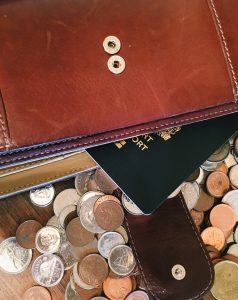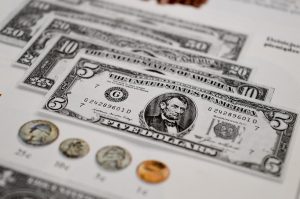Forex trading is a popular way to make money through the buying and selling of currencies. While it can be a lucrative venture, it is also a dangerous one. Forex trading involves high risk, and traders can lose large amounts of money quickly. In this article, we will examine the risks associated with forex trading and explore how dangerous it can be.
Leverage
One of the biggest risks of forex trading is leverage. Leverage is the use of borrowed funds to increase the size of a trade. This means that traders can control larger positions than they would be able to with their own funds. While this can lead to significant profits, it also increases the risk of losses.
For example, if a trader has $1,000 in their trading account and uses leverage of 100:1, they can control a position worth $100,000. If the trade goes against them and they lose 1%, they will have lost $1,000 – their entire trading account. This is why it’s important for traders to use leverage wisely and not risk more than they can afford to lose.
Volatility
Forex markets are notoriously volatile, meaning that prices can fluctuate rapidly and unpredictably. This can lead to significant losses for traders who are not prepared. Volatility can be caused by a variety of factors, including political events, economic data releases, and natural disasters.
For example, if a country experiences a political crisis, it can cause its currency to plummet in value. Traders who have taken long positions on that currency will suffer losses. Similarly, if a major economic report is released that is worse than expected, it can cause the currency to drop in value.
Market Manipulation
Another risk of forex trading is market manipulation. This occurs when individuals or institutions use unethical or illegal methods to influence the price of a currency. This can include insider trading, spoofing, and front-running.
Insider trading occurs when someone has access to non-public information that can affect the price of a currency. They use this information to make trades before the information is made public, allowing them to profit from the resulting price movement.
Spoofing involves placing large orders to create the illusion of market demand, only to cancel them once the price has moved in the desired direction. This can trick other traders into buying or selling, causing the price to move even further.
Front-running involves placing trades based on information obtained from a client before executing that client’s trade. This allows the trader to profit from the resulting price movement.
All of these practices are illegal and can lead to significant losses for traders who are not aware of them.
Scams
Finally, forex trading is also susceptible to scams. There are many unscrupulous individuals and companies who prey on inexperienced traders, offering them get-rich-quick schemes that are too good to be true. These scams can take many forms, including fake trading platforms, pyramid schemes, and Ponzi schemes.
Traders should be wary of any scheme that promises guaranteed profits or requires large upfront investments. They should also research any company or individual before investing with them, and look for reviews and testimonials from other traders.
Conclusion
In conclusion, forex trading can be a dangerous activity. Leverage, volatility, market manipulation, and scams all pose significant risks to traders. However, traders who are aware of these risks and take steps to mitigate them can still profit from forex trading. It’s important to use leverage wisely, be prepared for volatility, be aware of market manipulation, and avoid scams. With these precautions in mind, forex trading can be a profitable and rewarding venture.





